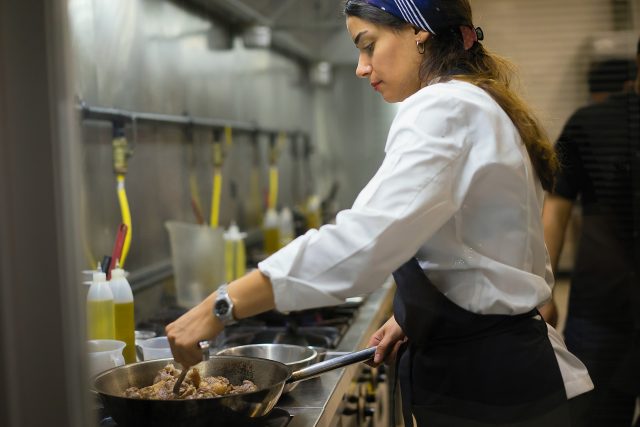How can hospitality’s gender imbalance be addressed?
While great progress has been made in recent years to address the extent to which the restaurant industry is male-dominated, there is still work left to do according to representatives of the sector.

While hospitality is going through a number of well-documented crises at the moment, from staff shortages to supply issues, the industry’s long standing gender disparity slips under many people’s radars.
The data concerning the imbalance is striking. Just 18.5% of professional chefs in the UK are women, a proportion that seems consistent at every level, from casual dining to three-Michelin-starred establishments. According to the Office for National Statistics, there is also still currently a 7.3% pay gap between men and women working as restaurant and catering establishment managers and proprietors.
Addressing this issue is no mean feat. The environment of professional kitchens is one that seems to produce an element of what might be referred to as ‘toxic masculinity’, a characteristic that might be off-putting to women interested in going into the industry.
Roles in professional kitchens are far less gendered than food media might lead us to believe, as former chef Katie Francis (who is currently assistant branch manager at hospitality staffing agency Off To Work) argued: “There is an assumption that if you’re a female chef you’ll ‘just be doing pastry’. There is a stereotypical view of the main kitchen being this blokey, masculine environment which in most restaurants couldn’t be further from the truth.”
Partner Content
It is also suggested that the diversity of roles in hospitality, from operations to marketing, should also be emphasised more.
Of course, there are obstacles, as Francis put it: “I think there are a lot of issues around maternity leave and pay which need to be looked at. Concerns around this are a massive barrier to women wanting to join the industry. A review of working hours and shift patterns is [also] needed. Yes, hospitality service usually means some evening and weekend work is required, but flexible and open-minded employers can and should manage a rota to fit around other commitments such as childcare.”
Alison Boutoille, founder of independent pub ranking site CityStack, suggested that the only way to break this self-perpetuating imbalance is to take deliberate action to break the cycle: “The more the workplace will welcome women, the easier it will be for other young women to feel confident enough to join the teams. The teams must be as gender-balanced as possible to attract women.”
Related reading: Five of London’s best women-run restaurants
Related news
Carlsberg boosts presence in China with restaurant guide tie-up




